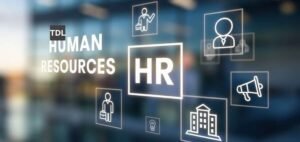The human resource itself has seen a complete transformation in the recent past from that of a traditional old-fashioned administrative role to that of an organizational success catalyst. The new HR leaders are confronted with record-breaker challenges ranging from as basic as facilitating remote work culture and managing multigenerational workers to leading artificial intelligence and foreseeing employee needs ahead. HR practitioners need to embrace newer approaches in order to succeed in today’s complex global business setting and become real business partners and change agents for their firms. The role of an HR leader is beyond recruitment, payroll, and compliance. It is now about setting strategy, creating culture, and driving transformations in organizations. HR leaders need to be business growth strategists, architects of the employee experience, and data-driven decision-makers. This evolution requires a new kind of leadership that mixes timeless HR wisdom with emerging technologies and strategies. Organizations that invest strategically in building future-proof HR leadership capabilities consistently outperform peers on employee engagement, retention, and business results.
Data-Driven Decision Making and Predictive Analytics
Its application to HR practice will be the single largest source of leadership excellence in the field. Human resource innovative leaders are leveraging people analytics to move away from intuition-based decisions to data-driven decisions that lead to measurable outcomes. With the support of sophisticated data gathering and analytics tools, HR practitioners can identify patterns in workers’ behavior, predict likelihood of worker turnover, and design talent recruitment strategies to perfection.
Predictive analytics allows HR leaders to shift from reactive to proactive, spotting potential issues before they become deep-seated long-term problems. It is in this journey that retention strategies aimed at targeted high-impact practices, career development informed by personalized practices, and workforce planning aligned with business goals can be crafted. In the hands of today’s HR leaders with these analytics, they become strategic decision makers whose advice drives organizational performance and competitiveness.
Constructing Employee Experience and Customization
Building great employee experiences has been the signature of great HR leadership, which has required ditching cookie cutter interventions to thrive in intensely customized engagement strategies. Design thinking principles are being used by visionary HR leaders in employee journey mapping, pain point mapping, and solution development leveraging every touch point from hiring to retirement. People-first thinking treats employees, as it treats customers, as individuals with distinct expectations and requirements that need to be heard and responded to.
HR personalization extends beyond flexible work arrangements to include experience-driven learning experiences, customized recognition programs, and condition-specific communication styles to different employee segments. Through leveraging technology platforms and analytics, HR leaders can create adaptive and tailor-based experience designs on personal needs and career stages. Such augmented experience design not only enhances engagement and satisfaction but also develops the organization’s talent attraction and retention capabilities in competitive labor markets.
Technological Integration and Digital Innovation
Technology as a strategy is one of the sets of competence that the current HR leaders must have in their quest towards organizational excellence and operational effectiveness. The use of artificial intelligence, machine learning, and automation is transforming the traditional HR tasks such that the routine administrative tasks are outsourced to technology and the strategic tasks are retained by the leaders. From artificial intelligence-driven employee support programs to shortlisting employees with artificial intelligence expertise, technology implementation facilitates HR operations to expand reach and improve delivery of services.
HR reinvention extends beyond process automation to encompass end-to-end human capital management solutions such as real-time analytics and smart user interface. HR leaders of the future are visionaries in using virtual reality in more impactful training programs, blockchain for verifying credentials, and mobile apps for continuous feedback and performance management. With these tech-enabled innovations as part of their toolkit, HR professionals can provide more engaging, impactful, and responsive services while putting their organizations at the change leadership forefront of the work world.
Conclusion
Excellence in HR leadership involves rethinking typical practice at its core and adopting a continuous attitude of creativity and adaptability. Tomorrow’s and today’s greatest HR leaders will be those who have a strong commitment to leading through evidence-driven decision-making, employee experience engineering, and using technology to steer their organizations. These paradigms are not fads but essential competencies that make up the contemporary HR profession. As business keeps on forging ahead in charting its course along the lines of even more ardent change on a scale never hitherto witnessed in the annals of man, HR managers will be required to be adaptive, question-driven, and learning-centered. The intersection of technology, analytics, and personalization is only the starting point of a more profound transformation that will fuel work of the future. The companies that invest in building these next-generation HR leadership skills will build sustainable competitive edge, build cultures of innovation and engagement, and drive enhanced business performance. It is time for HR leaders to become this wider role, and they will be leaders of organizational success and transformation.
Read Also: Steering Evolution: Transformative Leadership Trends in the Middle East




